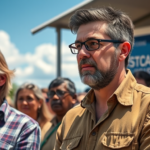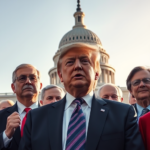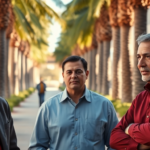Improving Cancer Care Equity in Louisiana: Melanie Sheen, MD’s Vision for Inclusive Healthcare
In a state where healthcare disparities have long posed significant challenges, a new initiative led by Ochsner Health in collaboration with MD Anderson is paving the way for improved cancer care equity in Louisiana. Through the establishment of multiple cancer centers across the state, this initiative aims to offer expansive access to cancer treatments, increase diverse clinical trial enrollments, and enhance awareness of preventative healthcare services, particularly targeting underserved communities in the region.
Expanding Access Through Strategic Collaborations
Ochsner MD Anderson’s recent efforts to improve healthcare delivery in Louisiana have centered on Medicaid expansion, a critical component that has allowed greater access to cancer screenings for patients who were previously unable to afford these services due to insurance limitations. The focus on early detection is especially crucial in the fight against breast cancer, as timely diagnosis can significantly enhance treatment outcomes.
Melanie Sheen, MD, a hematology and oncology specialist at Ochsner MD Anderson, emphasized that “partnership and community among physicians” are key to extending these benefits to all Louisianans, ensuring that patients have equal access to cutting-edge knowledge and resources. The integration of Medicaid has not only increased availability of mammograms and primary care consultations but has also removed historical barriers to cancer care access, fundamentally transforming the healthcare landscape in the state.
Community Engagement: Educating and Empowering
A cornerstone of this initiative is the role of community partnerships. By actively engaging local organizations, Ochsner MD Anderson is spreading awareness of the risks associated with cancer, the importance of knowing one’s family medical history, and the necessity of regular screenings. These grassroots efforts, according to Dr. Sheen, are instrumental in reaching populations less likely to access information through traditional healthcare systems.
Linda Johnson, a community health worker in southern Louisiana, praised the strategy, remarking, “Educating women about their health risks and empowering them with the knowledge to seek proactive care is changing lives here in the Valley. Community interest in these topics is at an all-time high.”
The Role of Technology in Revolutionizing Care
In addition to community outreach, technological advancements are playing a pivotal role in this healthcare revolution. The ‘Chemo Care Companion,’ a digital tool implemented by Ochsner MD Anderson, exemplifies how technology can enhance patient care. Designed for remote monitoring, this tool helps manage breast cancer patients undergoing chemotherapy by tracking vital signs and symptoms. Nurse practitioners overseeing this data can provide timely interventions, reducing the need for emergency healthcare visits and improving patient outcomes.
This innovative approach aligns with the broader movement towards building trustful patient-physician relationships, which Dr. Sheen believes is essential for improving clinical trial enrollment. By facilitating continuous communication and supporting patients through active treatment and survivorship, digital tools like the ‘Chemo Care Companion’ are reshaping how care is delivered.
Community-Specific Impacts and Beyond
For the residents of Louisiana, this intensified focus on equitable cancer care represents a significant shift in addressing the state’s healthcare challenges. The initiative not only holds promise for immediate improvements in early cancer detection and treatment accessibility but also sets a standard for future healthcare endeavors. As the state works to overcome both historical and systemic barriers, such efforts are closing the gap for historically underserved populations, providing hope for lasting change.
The implications of these efforts extend beyond the local sphere, potentially influencing healthcare practices nationally. As other regions look to Louisiana’s approach as a model, the potential for widespread systemic change appears promising. By continuing to promote diverse clinical trials and community collaboration, Ochsner MD Anderson is not only enhancing local impact but also contributing to a broader dialogue on healthcare equality.
Critiques and Considerations
However, as with any large-scale initiative, the path forward must address potential concerns, such as the sustainability of funding and the operational challenges posed by integrating advanced technologies into routine practice. Balancing these elements with community needs requires ongoing assessment and adaptation.
Furthermore, ensuring the transparency of this initiative and actively involving stakeholders at all levels is critical. Engaging local residents not only builds trust but also fosters a sense of ownership and accountability that can drive the initiative’s success.
Resources for Residents
To aid in this transition, Ochsner Health has established a series of informational resources and community forums. Residents are encouraged to engage with these platforms to learn more about available cancer care services and provide feedback that can shape ongoing efforts.
In conclusion, the collaborative efforts of Ochsner Health and MD Anderson herald a new era of cancer care equity in Louisiana. Through a combination of strategic Medicaid expansion, community partnership, and cutting-edge technology, the initiative embodies a comprehensive approach to healthcare, one that promises to empower residents and set a precedent for others to follow. As the legacy of this initiative unfolds, it stands as a testament to the power of collaboration and innovation in achieving health equity.







